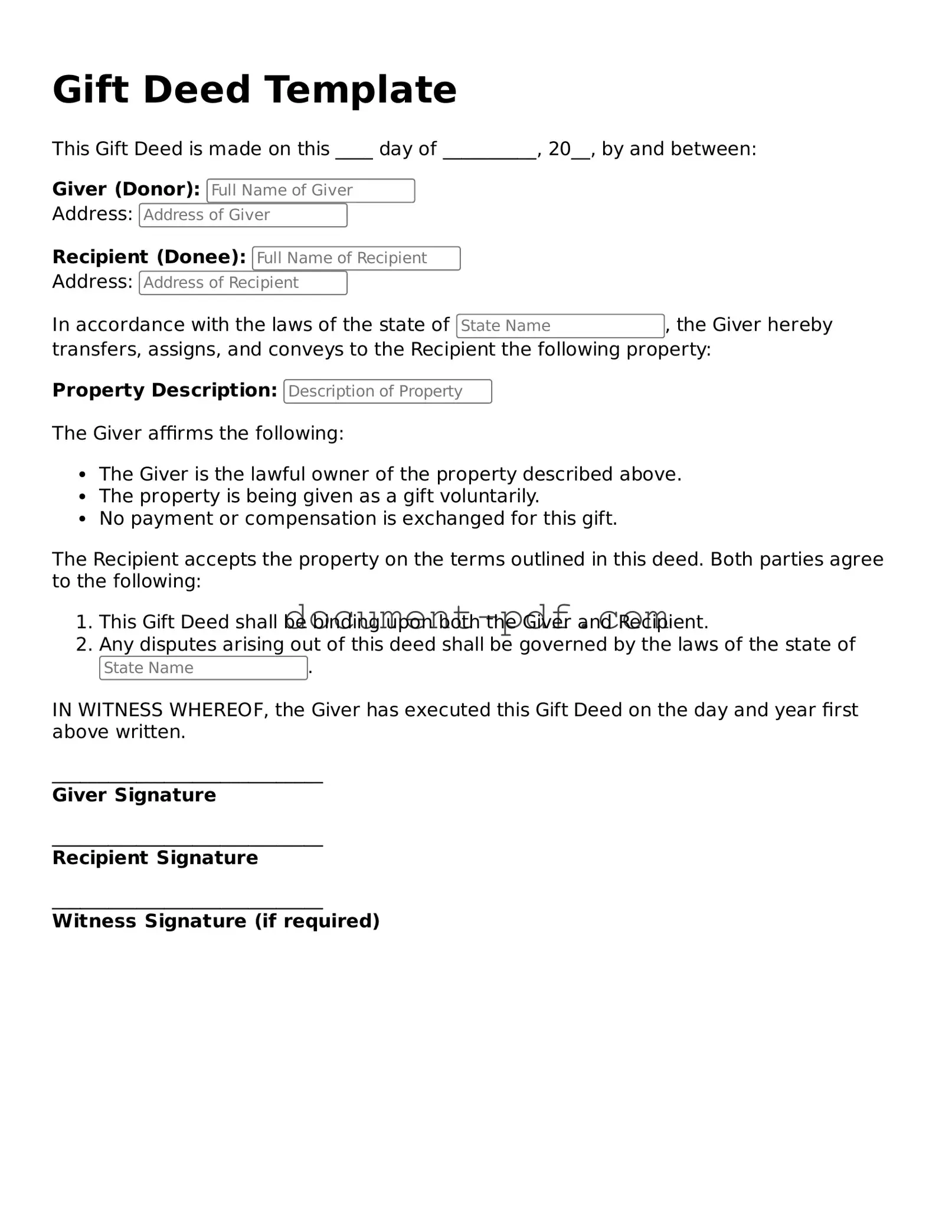Attorney-Approved Gift Deed Document
A Gift Deed is a legal document that facilitates the transfer of ownership of property from one individual to another without any exchange of money. This form outlines the details of the gift, including the parties involved and the property being gifted. To begin the process, consider filling out the form by clicking the button below.
Access Gift Deed Editor Here

Attorney-Approved Gift Deed Document
Access Gift Deed Editor Here
Finish the form without slowing down
Edit your Gift Deed online and download the finished file.
Access Gift Deed Editor Here
or
Click for PDF Form
